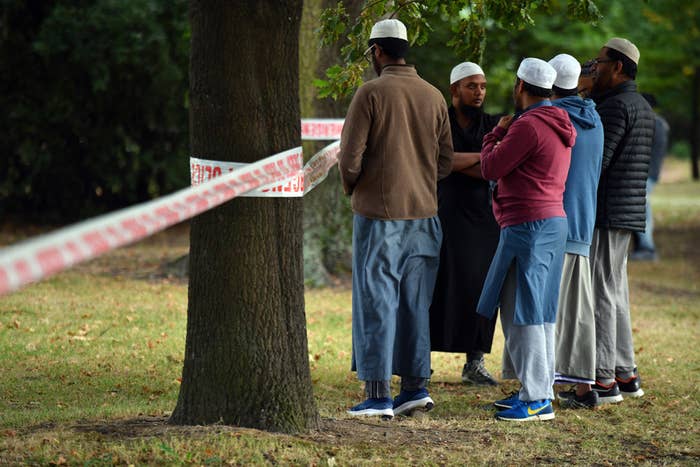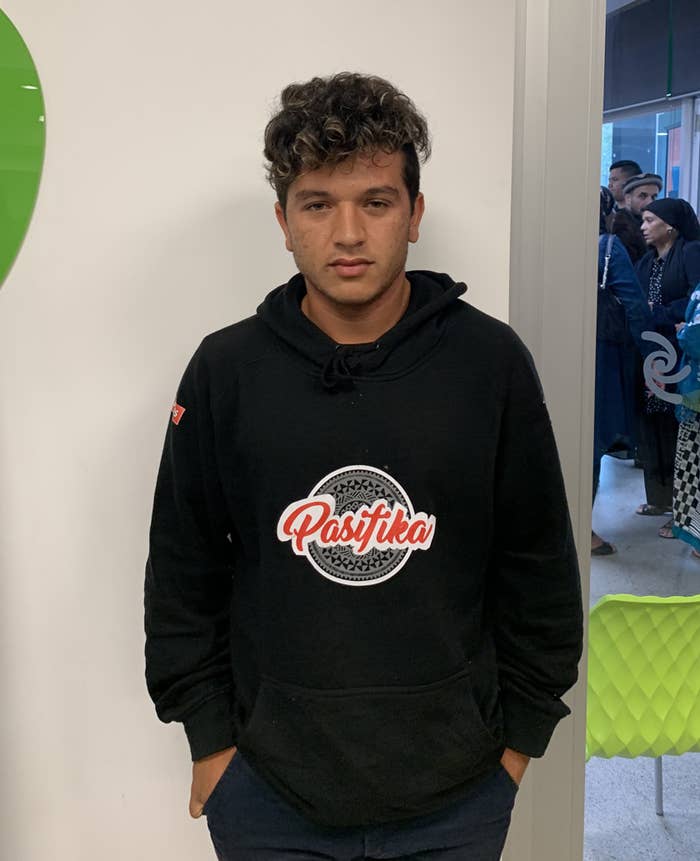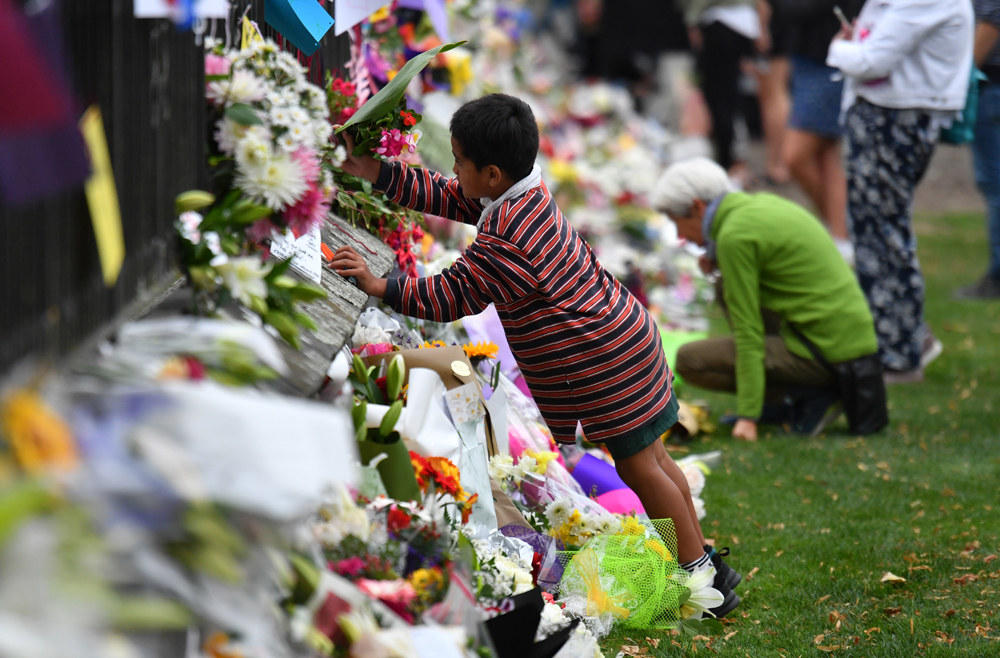
Harry Khan had planned to be at the Al Noor mosque on Friday afternoon.
The 20-year-old student told BuzzFeed News he was studying at the University of Canterbury library that day, focused on an assignment.
“We had to write a 1000 word essay and I was really stuck into it,” he said. “I thought I could finish it. That’s what held me back to stay in the library instead of going to the mosque.”
The mosque was a happy place for Khan and his large family, who came to Christchurch as refugees from Afghanistan in 2010.
“There’s no hate or anything, it’s like everyone leaves everything behind at the door, comes in there, tries to celebrate Friday and just get together and see each other," he said.
But at around 1.45pm, his phone pinged with a message from one of his uncles, sent to Khan’s family group chat on Viber. It said there was an attack happening at the mosque.
“It didn’t sound real to me,” Khan said. “I gave him a call to make sure everything was OK and he was really shocked, I could hear from his voice that things were serious, and he was saying ‘don’t come to the mosque, there’s an attack, there’s a gunman shooting’.”

The uncle had arrived late to mosque and was about to enter when he saw a man walk inside, shooting a gun. He ran away and was unharmed.
But while most of Khan’s family were mercifully either absent from or running late to mosque that day, another of his uncles, Matiullah Safi, was inside. The father of five was killed in the attack.
Khan remembered Safi as a “great man”.
“You could always go to him, he always had a smile on his face, he was always at the mosque earlier than anyone, he was staying there, he was helping out with a lot of charities,” he said. “He was a great member of the family, keeping everyone in place and keeping everyone together.”
The family found out Safi was dead overnight, Khan told BuzzFeed News on Sunday morning. They had been in limbo since Friday afternoon, drifting between Christchurch hospital, the family assistance centre at Hagley College, and home, not knowing for sure what had happened to Safi.
Khan recalled that on Friday night, hours after the attack, his cousin was panicking, watching the video of the shooting that circulated on social media.
“He was showing me the video, going ‘this is my dad, he got shot in the head’,” Khan said.
“It was really disturbing. I tried to settle him down, I said ‘it’s not your dad’. That was on the first night of the accident and we had no idea whether he was injured or killed … He was saying ‘this is my dad, I know him, I know what kind of clothes he wears’ and stuff.”
Other than that snippet, Khan has not watched the video. He initially thought it was just a livestream of the gunman talking before the shooting. “When I looked at the video and I started seeing he was going in there, I didn’t watch it. It was really disturbing,” he said.
New Zealand police has not yet issued a list of the 50 people killed in the attack. The Afghanistan embassy in Canberra, Australia, wrote in a statement that Matiullah Safi was one of two Afghans killed.
Yasin Hokati, honorary consul at the Afghanistan embassy in New Zealand, told BuzzFeed News he did not have official confirmation from police or the ministry of foreign affairs of Safi’s passing, but understood that his family and community believe he is among the dead.

Some families, including Khan’s, have been left frustrated by the fact bodies are yet to be returned to the families for burial. Authorities say the first may start to be released tonight.
In a press conference on Sunday afternoon, chief coroner Deborah Marshall and deputy police commissioner Wally Haumaha detailed the lengthy victim identification process and said they were doing everything they could to manage the cultural needs of the Muslim community.
"It is to make sure that we are sure of the identity of a deceased person. There could be nothing worse than giving the wrong body to the wrong family," Marshall said.
Khan explained that in Islam, the body should be buried within 24 hours. After the funeral, where the body is washed and buried, people traditionally come over to the house of the deceased person’s family, he said.
“They read from the Holy Book, try to put their soul into peace, and that doesn’t happen until the body is buried,” he said.
Until that can happen for Safi, his family is in a “helpless place”, said Khan.
“They can’t put his soul into peace because he’s still out there and he’s not buried yet. It kind of leaves them feeling really vulnerable. I can’t imagine what my cousins are going through. I’ve gone through a lot, but for them it would be a lot worse.”
Khan’s older brother was also caught up in the attacks. He was across the city at the Linwood Islamic Centre when a second shooting unfolded, minutes after the Al Noor massacre.
After the first shooting, Khan and his mother both frantically dialled his brother, but he didn't pick up. At five to two, he called Khan to say there was shooting at the Linwood mosque.
“He said 'I need you to call the police because I’m stuck in here',” Khan said. Khan left the library, dialled police, and started heading to Linwood.
His brother called again five minutes later, saying “Do not come here, do not go near the area, go home and stay there and I’ll keep you updated.”
An agonising 20 minutes later, Khan got a third call. His brother was safe.
“Someone from the Linwood Mosque fought back and saved a lot of people’s lives,” Khan said. “He was one of them, to be saved.”

